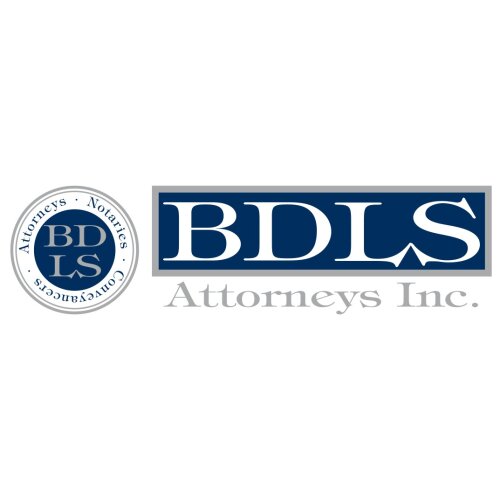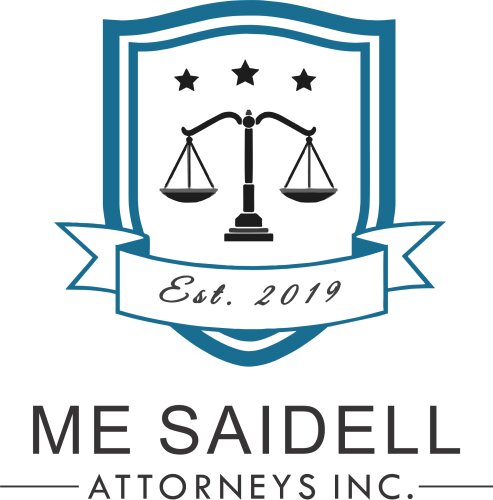Best Business Registration Lawyers in South Africa
Share your needs with us, get contacted by law firms.
Free. Takes 2 min.
Or refine your search by selecting a city:
List of the best lawyers in South Africa
About Business Registration Law in South Africa
Business Registration in South Africa is primarily governed by the Companies Act of 2008 and the Close Corporations Act of 1984. These laws establish the framework for registering a new business, ensuring compliance with legal requirements, and protecting both the business owners and their consumers. The Companies and Intellectual Property Commission (CIPC) is the primary body responsible for registering businesses, and it oversees the administration, application, and compliance of the laws. Starting a business in South Africa requires choosing the appropriate business structure, such as a sole proprietorship, partnership, private company (Pty Ltd), or public company, and completing the necessary registration processes for taxation and other statutory obligations.
Why You May Need a Lawyer
There are several situations where seeking legal advice is beneficial or necessary when registering a business in South Africa:
- Choosing the Right Business Structure: A lawyer can help you understand the implications of each business structure in terms of liability, taxation, and regulatory compliance.
- Drafting Foundational Documents: Legal expertise is beneficial when creating important documents such as memoranda of incorporation, partnership agreements, or shareholder agreements.
- Regulatory Compliance: Ensuring that all legal requirements are met can be complex, and a lawyer can help you adhere to these, avoiding fines or legal disputes.
- Resolving Disputes: Legal disputes may arise during the registration process, and having a lawyer can help navigate these issues effectively.
- Protecting Intellectual Property: A lawyer can assist with trademark registrations and other intellectual property matters that safeguard your business's interests.
Local Laws Overview
The key laws that pertain to Business Registration in South Africa include:
- The Companies Act, 2008: Governs the establishment, registration, and dissolution of companies in South Africa, outlining the requirements for different company structures.
- The Close Corporations Act, 1984: Governs the registration and operation of close corporations, although new registrations have ceased since the introduction of the Companies Act.
- The Income Tax Act: Requires businesses to register for tax purposes with the South African Revenue Service (SARS).
- Broad-Based Black Economic Empowerment (B-BBEE) Act: Encourages businesses to participate in programs that promote economic transformation in South Africa.
Frequently Asked Questions
What is the first step to register a business in South Africa?
The first step is to decide on a business structure and then check for name availability through the CIPC portal before filing the necessary documents.
How long does the business registration process take?
Typically, the process takes about 5 to 7 working days if all documents are correctly submitted and there are no discrepancies.
Do I need a physical address to register my business?
Yes, a business in South Africa must have a registered physical address to be approved by the CIPC.
Can foreigners register a business in South Africa?
Yes, foreigners can register a business in South Africa, but they need to comply with additional requirements, such as obtaining a business visa or work permit.
Is it necessary to register for VAT immediately?
Businesses must register for VAT only if their taxable supplies exceed R1 million over a 12-month period. Voluntary registration is possible below this threshold.
What is a Memorandum of Incorporation?
A Memorandum of Incorporation (MOI) is a legal document that outlines the rules, responsibilities, and rights of a company as constituted under the Companies Act.
What are some potential business structures available for registration?
The most common business structures include a sole proprietorship, partnership, private company (Pty Ltd), and personal liability company (PLC).
Is it compulsory to have a company secretary?
It is not mandatory for all business structures to have a company secretary, but it is a requirement for public companies and some specified private companies.
Can I change my business structure after registration?
Yes, businesses can change their structure post-registration, but this involves various legal and administrative processes and should be approached with care.
What compliance certificates are required for operation?
Depending on the industry, businesses may need additional compliance certificates, such as health and safety certificates, depending on the nature of the business activities.
Additional Resources
Consider the following resources for further information and guidance:
- Companies and Intellectual Property Commission (CIPC): The primary body for registering companies and intellectual property in South Africa.
- South African Revenue Service (SARS): For information on tax regulations and requirements.
- Department of Trade, Industry and Competition (DTIC): Offers guidance on trade and broader economic participation programs.
- Local Chambers of Commerce: Provides networking opportunities and local business resources.
Next Steps
If you require legal assistance or further guidance regarding business registration in South Africa, consider contacting a local business attorney who specializes in corporate law. They can offer valuable advice tailored to your specific business needs. It's also beneficial to engage with a certified accountant to ensure that your business remains compliant with all financial regulations. For additional assistance, reach out to the CIPC or consult with an experienced business consultant, particularly if you're exploring complex business structures or international trade opportunities. Take the time to ensure all legalities are thoroughly addressed to create a strong foundation for your business.
Lawzana helps you find the best lawyers and law firms in South Africa through a curated and pre-screened list of qualified legal professionals. Our platform offers rankings and detailed profiles of attorneys and law firms, allowing you to compare based on practice areas, including Business Registration, experience, and client feedback.
Each profile includes a description of the firm's areas of practice, client reviews, team members and partners, year of establishment, spoken languages, office locations, contact information, social media presence, and any published articles or resources. Most firms on our platform speak English and are experienced in both local and international legal matters.
Get a quote from top-rated law firms in South Africa — quickly, securely, and without unnecessary hassle.
Disclaimer:
The information provided on this page is for general informational purposes only and does not constitute legal advice. While we strive to ensure the accuracy and relevance of the content, legal information may change over time, and interpretations of the law can vary. You should always consult with a qualified legal professional for advice specific to your situation.
We disclaim all liability for actions taken or not taken based on the content of this page. If you believe any information is incorrect or outdated, please contact us, and we will review and update it where appropriate.
Browse business registration law firms by city in South Africa
Refine your search by selecting a city.















